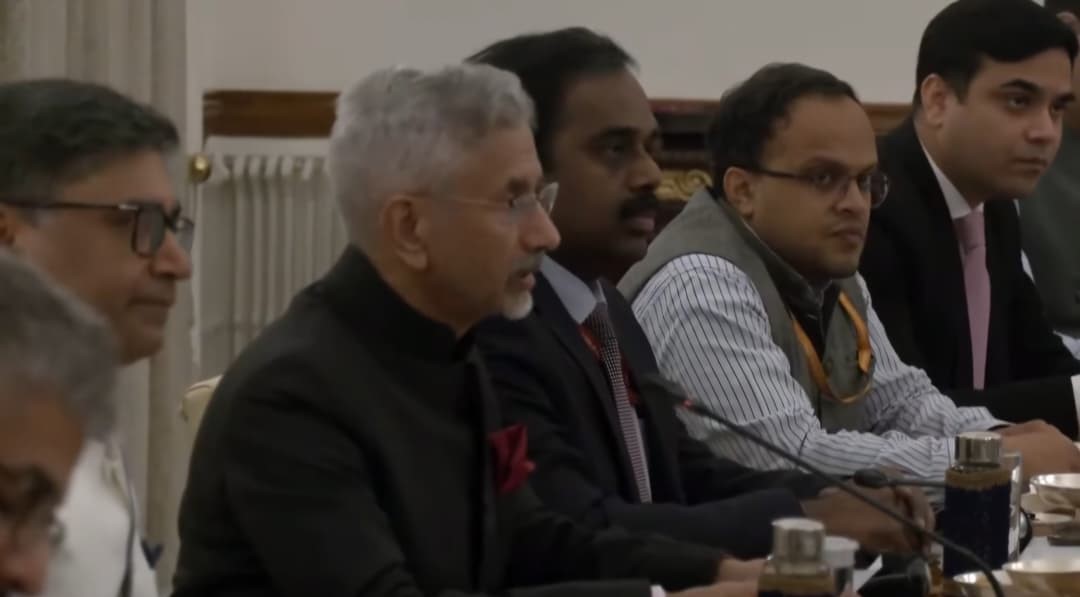India will upgrade its technical mission in Kabul to a full-fledged Embassy, External Affairs Minister S. Jaishankar announced on Friday after meeting Afghan Foreign Minister Amir Khan Muttaqi.
“India is fully committed to the sovereignty, territorial integrity and independence of Afghanistan. Closer cooperation between us contributes to your national development as well as regional stability and resilience. To enhance that, I am pleased to announce today the upgrading of India’s Technical Mission in Kabul to the status of Embassy of India,” Jaishankar said.
India had closed its embassy in Kabul after the Taliban seized power following the withdrawal of U.S.-led NATO forces in 2021 but reopened a small mission a year later to facilitate trade, medical support and humanitarian aid.
About a dozen countries, including China, Russia, Iran, Pakistan and Turkey, have embassies operating in Kabul, although Russia remains the only country to have formally recognised the Taliban administration.
Jaishankar underscored India’s continued role in Afghanistan’s development and said both sides discussed the upkeep of existing projects and the completion of those still in progress.
“As a well-wisher of the Afghan people, India has a deep interest in your development and progress. Today, I reaffirm that our longstanding partnership, which has seen many Indian projects in Afghanistan, stands renewed. We can discuss the maintenance and repair of finished projects as well as steps to complete others to which we have already committed. Beyond that, other development priorities of Afghanistan can be discussed by our teams,” the EAM said.
Highlighting India’s continued assistance to Afghanistan over the years, Jaishankar said,, “India has long supported the health security of Afghanistan, including during the COVID-19 pandemic. We are now ready to commit to six new projects, the details of which can be announced after the conclusion of our talks. A gift of 20 ambulances is another gesture of goodwill, and I would like to hand over five of them to you personally as a symbolic step.”
He added, “India will also provide MRI and CT scan machines to Afghan hospitals and deliver vaccines for immunisation as well as cancer medicines. We have also supplied drug rehabilitation materials through the UNODC and are open to doing more. As a first responder, Indian relief materials were delivered to earthquake-affected sites within hours last month. We would like to contribute to the reconstruction of residences in the affected areas. India has also been a major provider of food assistance to the Afghan people. A further consignment will be delivered in Kabul today.”
Jaishankar also expressed concern over the forced repatriation of Afghan refugees. “The plight of forcibly repatriated Afghan refugees is a matter of deep concern. Their dignity and livelihood are important. India agrees to help construct residences for them and continue providing material aid to rebuild their lives,” he said.
On bilateral cooperation, the Indian foreign minister noted that India and Afghanistan have a productive history of working together on water management and irrigation. “We note the interest on the Afghan side in taking this further and are ready to collaborate on the sustainable management of its water resources. Your invitation to Indian companies to explore mining opportunities in Afghanistan is also deeply appreciated. This can be discussed further,” he said.
The EAM also spoke about shared interests in trade, commerce, education and sports. He welcomed the commencement of additional flights between Kabul and New Delhi and announced that India would expand opportunities for Afghan students to study at Indian universities.
“Our educational and capacity-building programmes have long nurtured Afghan youth. Sports is another longstanding connection. The emergence of Afghan cricket talent has been truly impressive, and India is glad to deepen its support for Afghan cricket. As you are aware, India introduced a new visa module for Afghan citizens in April 2025, allowing for a greater number of visas, including in medical, business and student categories,” Jaishankar said.
Stressing the need for coordination to combat cross-border terrorism, the EAM said, “We have a common commitment to growth and prosperity. However, these are endangered by the shared threat of cross-border terrorism that both our nations face. We must coordinate efforts to combat terrorism in all its forms. We appreciate your sensitivity towards India’s security concerns. Your solidarity with us in the aftermath of the Pahalgam terrorist attack was noteworthy.”
Muttaqi is on a six-day visit to India aimed at boosting ties with New Delhi. His trip was made possible after the U.N. Security Council Committee temporarily lifted a travel ban on him to allow diplomatic engagements abroad.
Muttaqi is among several Afghan Taliban members under U.N. sanctions, including a travel ban and asset freeze, though temporary exemptions are sometimes granted for diplomatic purposes.
(with agency input)














